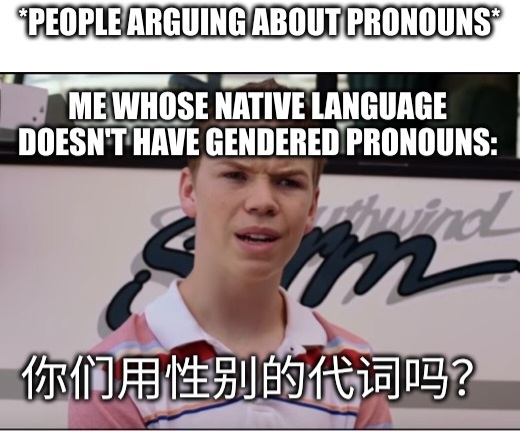The argument seems to be that, in a language with ungendered pronouns, all genders are included, so you don't need neopronouns for the purpose of inclusion. Nevertheless, you could still replace an ungendered pronoun with a neopronoun to be more accurate, or for other purposes.
Memes
Rules:
- Be civil and nice.
- Try not to excessively repost, as a rule of thumb, wait at least 2 months to do it if you have to.
Meanwhile in Japanese, you get to gender YOURSELF!
Boy English is pretty tame. My native language has gendered pronouns for what feels like every type of relative you can have. I don't see my extended family very often so truthfully I don't even know half of those pronouns. Sometimes a relative pops up out of nowhere and I get all confused about pronouns again. Seriously, like last year at a family gathering my aunt (maybe? idk, she's my grandmother's niece) brought someone and was like "heyyyy yall are related come say hiii" and she was like brand new information to everyone there lol.
My language (Bangla) also doesn't really have genders. The only places where we use anything gendered are adjectives and some nouns (especially those denoting relations). But gendered adjectives aren't really used nowadays, the male version is usually treated as neutral.
